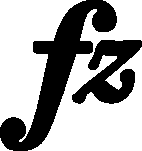



|
b. 1
|
composition: Op. 10 No 4, Etude in C♯ minor
..
We give the time signature marking after AI, although theoretically, Chopin could have introduced category imprint: Interpretations within context; Differences between sources issues: Errors in FE , 4/4 or 2/2 |
||||||||||||||||||
|
b. 1
|
composition: Op. 10 No 4, Etude in C♯ minor
..
Chopin did not write the title of the piece in AI, although it is hard to believe that in August 1832, at the stage of completing the entire Op. 10, he could have even considered naming it differently than Etude. The conviction is not hampered by the fact that at the end of the editorial autograph of the Etude in E major, No. 3, Chopin uses the determination of tempo-character il presto con fuoco for the identification of the subsequent etude in the collection. In the main text we give the title and dedication in the undoubtedly authentic version adopted in FE. The extensions of both the title (in GE and EE) and the dedication (in EE) most probably come from the editors. See the Etude in C major, No. 1, bar 1. category imprint: Differences between sources issues: EE revisions , Errors in FE , Dedications , GE revisions |
||||||||||||||||||
|
b. 1
|
composition: Op. 10 No 4, Etude in C♯ minor
..
In the version prepared for print, the first fingering numerals appear not until bar 12. However, during the lessons with Chopin, the indications concerning the fingering proved to be necessary already earlier. In the main text we consider the fingering written by Chopin in FES. In EE Fontana also offered his suggestion for bar 1, yet this fingering, avoiding the use of the 1st finger on black keys, diverts from the one by Chopin. category imprint: Differences between sources issues: Annotations in teaching copies , EE revisions , Annotations in FES |
||||||||||||||||||
|
b. 1
|
composition: Op. 10 No 4, Etude in C♯ minor
..
In the main text we suggest an indication composed of the elements whose authenticity seems to be most plausible: category imprint: Differences between sources issues: Inaccuracies in FE , fz – f |
||||||||||||||||||
|
b. 1
|
composition: Op. 10 No 4, Etude in C♯ minor
..
According to us, lack of the slurs connecting the upbeat with the beginning of bar 1 in FE (→GE,EE) should be considered – independently from the reason thereof – as inaccuracy of notation. An accidental omission of one or both marks could have happened both to Chopin himself in [A] and the engraver of FE. Cf. the note to bars 16-17. category imprint: Differences between sources |



 in the lost [A]. According to us, it is, however, much more likely that it was an arbitrary change of the engraver of
in the lost [A]. According to us, it is, however, much more likely that it was an arbitrary change of the engraver of  marking in the Etudes – contrary to the manuscripts – even once, cf. the Etudes in C major, No. 1, F major, No. 8 and C minor, No. 12. The phenomenon is also present in other pieces, even in the most obvious cases, e.g., in the Etudes in F minor, Op. 25 No. 2, D
marking in the Etudes – contrary to the manuscripts – even once, cf. the Etudes in C major, No. 1, F major, No. 8 and C minor, No. 12. The phenomenon is also present in other pieces, even in the most obvious cases, e.g., in the Etudes in F minor, Op. 25 No. 2, D major, Op. 25 No. 8 or F minor, Dbop. 36 No. 1.
major, Op. 25 No. 8 or F minor, Dbop. 36 No. 1. 










 in
in 

 in
in 

